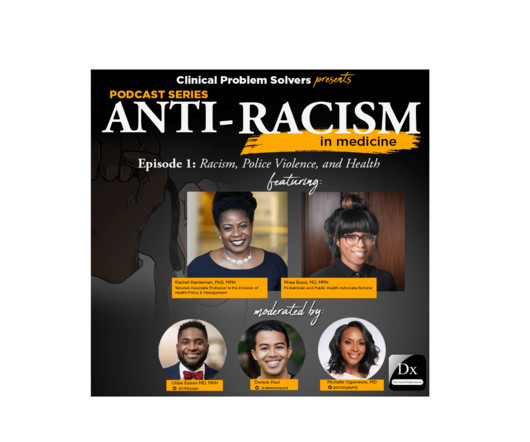Episode 262: Anti-Racism in Medicine Series – Episode 18 – Remedying Health Inequities Driven by the Carceral System
The Clinical Problem Solvers
OCTOBER 18, 2022
All healthcare professionals will have patients who are directly or indirectly impacted by the carceral system. Our guests remind us to think critically about our role in the carceral system and in imposing systems of control and punishment within clinical settings. Fields MD, Victor A.













Let's personalize your content